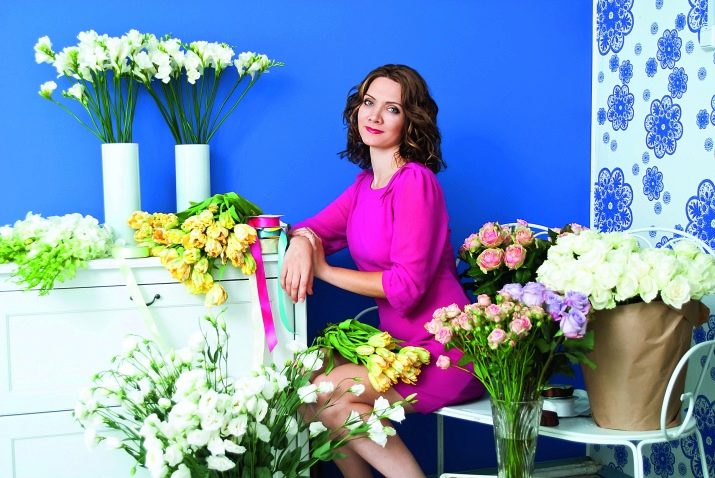Florist: who is he and what does he do?
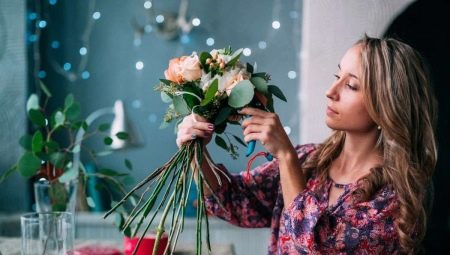
Florist is a creative profession. It seems to many that one can come to floristry "from the street", study at the place of work, and there are no difficulties in this. Of course, this happens, but really cool florists are people with a serious education (and not even one) and a scrupulous attitude to the business they took up.
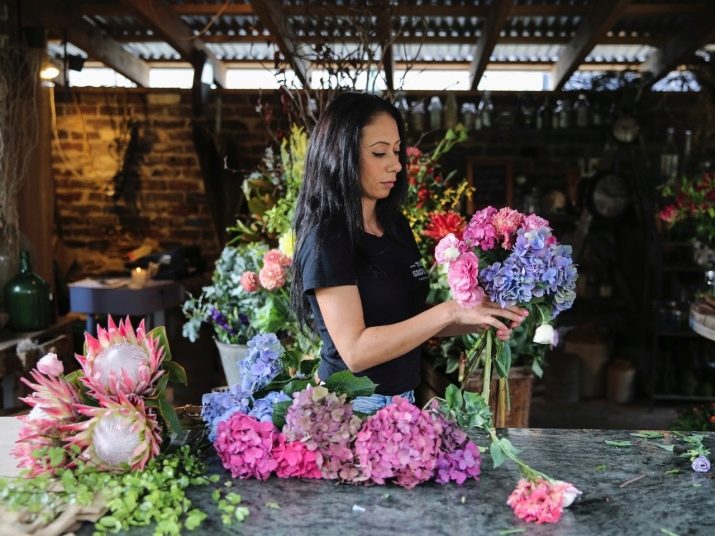
Description
The florist profession is considered to be quite ancient. Its name comes from the name of the ancient Roman goddess of flowers Flora. A person who has chosen this profession is engaged in flowers, but not growing and purely selling, but making flower arrangements. These are not only bouquets, but also decor, all kinds of decoration of spaces, holidays, festivals and art salons.
They have the opportunity to design shop windows, offices, living quarters, television studios, work at fashion shows, weddings and other celebrations.
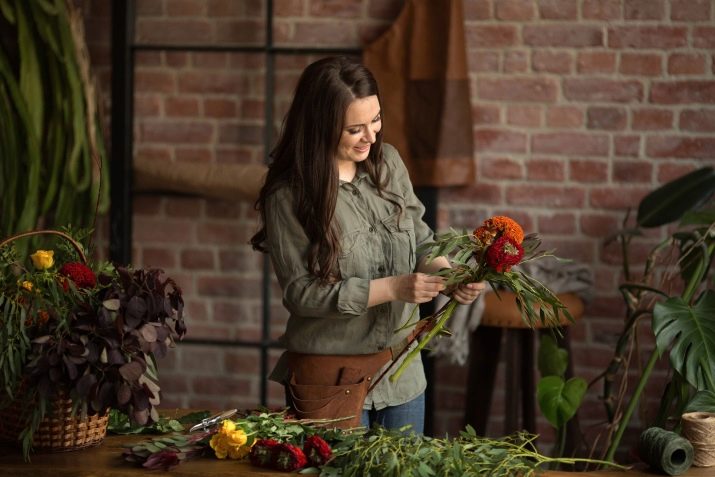
It is interesting that people from other professions really often come to floristry. It so happens that either burnout or professional oversaturation occurs, and you want to change your occupation. Floristry courses seem attractive to many who are tired of their previous work: beautiful, graceful, subtle, and fresh flowers give a lot of energy to those who do them.
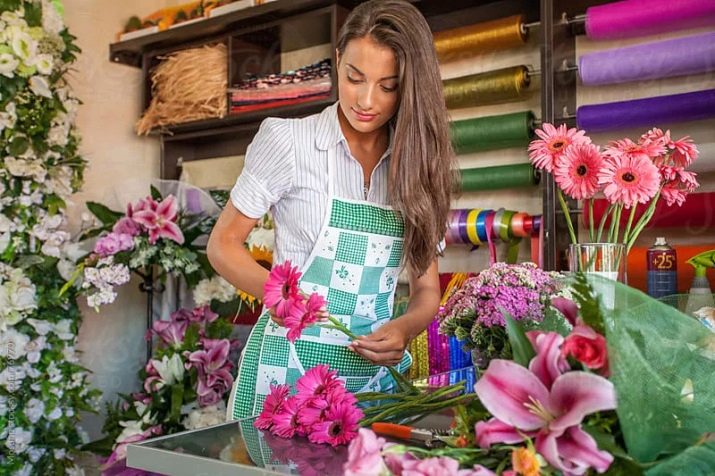
A modern florist works not only with fresh flowers - such a palette is not enough for this artist. Branches, needles, moss, roots, dried leaves - anything can be used. A bouquet or composition is created with an image, a mood, it should be not only beautiful, but also in tune with the place and action for which the floral design is being prepared. Therefore, it is important for a florist to understand not only the composition of flower arrangements, but also the basics of design, to know what color and interior fashion are. He should be aware of different cultural traditions, know the peculiarities of calendar holidays, rituals a little deeper than the layman.
If this is a person who works in a flower shop or salon, then he sells the plants, takes care of them so that they do not wilted ahead of time, and also maintains documentation. Of course, such a florist should be able to communicate with clients, understand their needs.
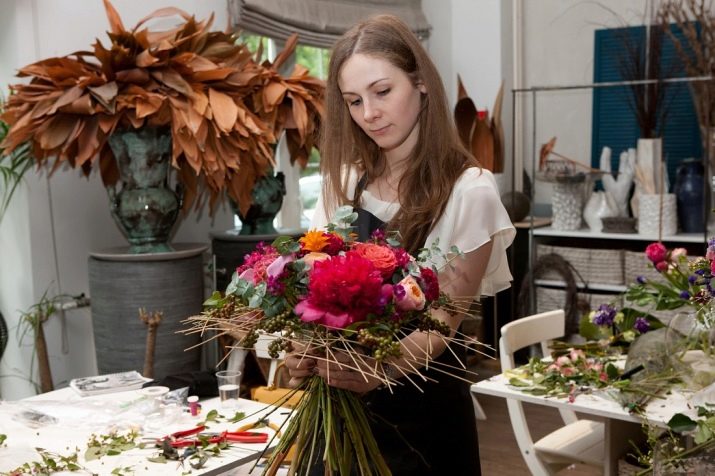
Advantages and disadvantages
They are, like any profession. Florists are in demand in large cities, rather a little more than in small ones. But if this is a great specialist, he will not be left without work. Registration of weddings, celebrations, city exhibitions and festivals - there can be a lot of orders even in the provinces. This profession is useful for society, and yet more people respond not to faceless bouquets, but to a beautiful trendy approach to working with flowers.
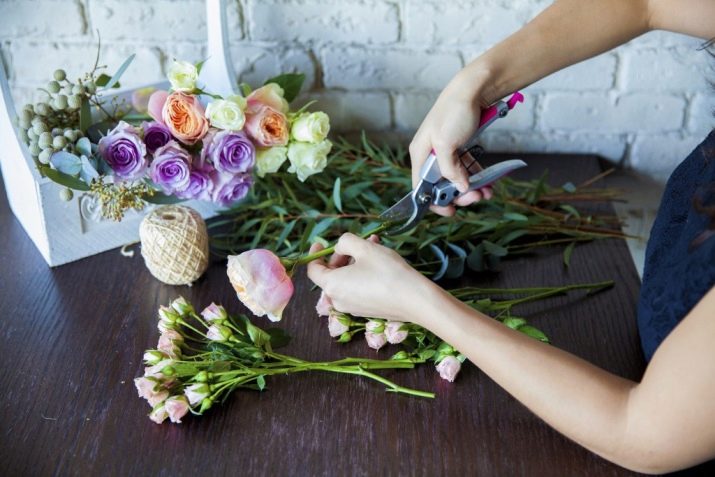
The positive aspects of the profession:
- pleasant environment;
- the opportunity to realize your artistic talents;
- small work team;
- growth and development prospects;
- an increase in niches where florist services can be involved;
- availability of training.
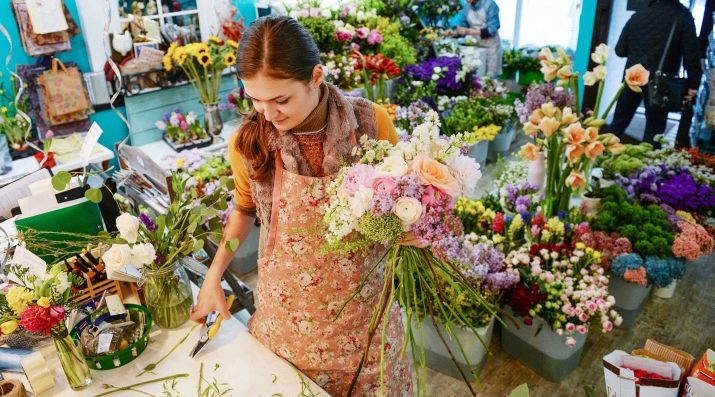
There are also disadvantages:
- whether the project will take off (if it is a private affair of the florist himself) or not, you will never know in advance;
- there is not always a guarantee of employment after training;
- if it is a flower shop, the schedule may be shift, possibly later opening hours.
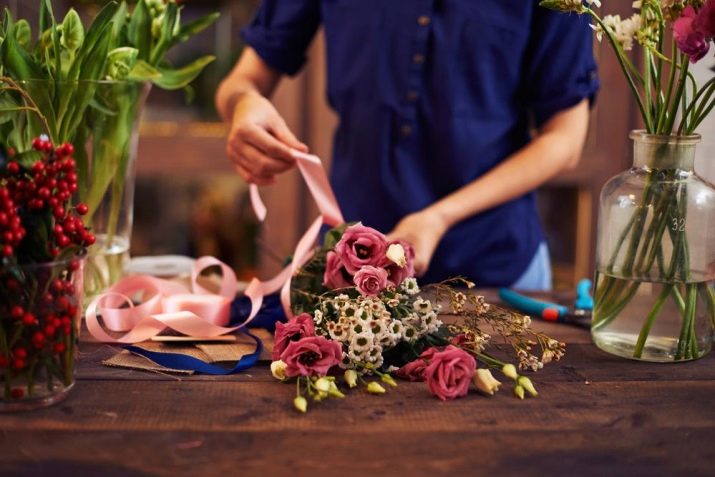
In general, people come to the profession who understand the market for the flower business and floristry in particular, which they are going to enter. It is very cool if, during training, a person is trained in a place where, in theory, he can then work. In a big city, of course, finding a job is easier. Active maintenance of social networks facilitates job search and professional promotion.
It's like a showcase with your own labor products, the best business card for potential customers.
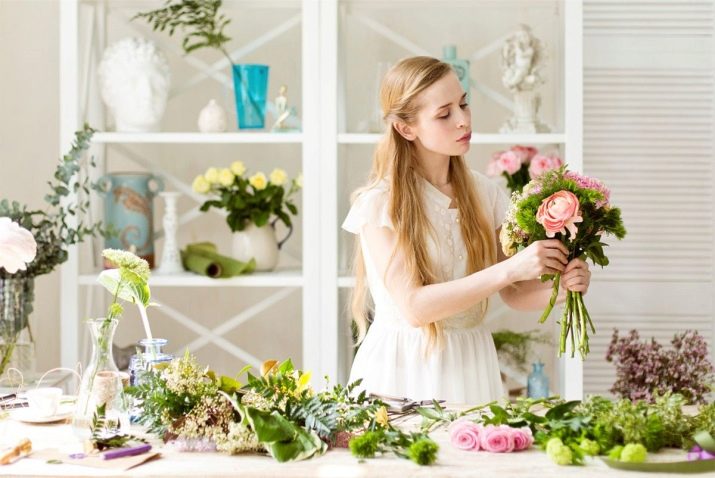
Responsibilities
Each florist, entering a job, receives job descriptions. And he is obliged to familiarize himself with each item, this is not a formality.
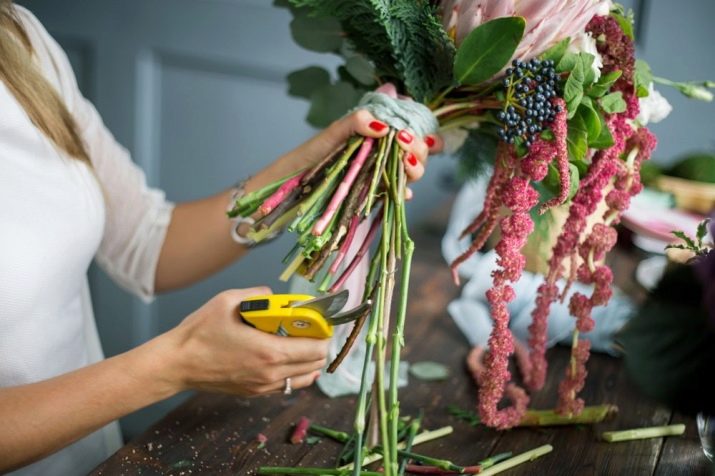
Consider what a florist's job is.
- Organization and execution of tasks for the processing and storage of cut flowers, plants and materials equivalent to them. This is done mainly by the seller-florist.
- Compliance with technological requirements, storage standards, packaging of flowers and related products during floristic work.
- Creation of multi-level floristic products, knowledge of techniques, techniques, tools and styles for creating flower arrangements.
- Implementation of works on interior and exterior decoration with flower arrangements.
- Making different types of flower products - boutonnieres, compositions, baskets, etc.
- Creation of compositions from artificial plants and dried flowers.
- Organization and execution of floristic work at outdoor events. Not every florist is engaged in this, but if he works in a studio, which, among other things, is profiled in the design of holidays and interiors, the professional standard implies these responsibilities.
- Participation in competitions, exhibitions, performances and demonstration of professional skills. If a salon or other place where a florist finds a job, values its reputation, seeks to grow and expand professional horizons, exhibitions and other competitions are required. And a specialist needs to be prepared for such a career challenge. However, people who sincerely love floristry are only happy with such offers.
- Drawing up cost estimates, keeping records. If the organization is large, another specialist can do this, but basically all this lies with the same florist.
- Keeping registration of orders.
- Maintaining a clean and tidy workplace. Compliance with the rules of fire safety and labor protection.
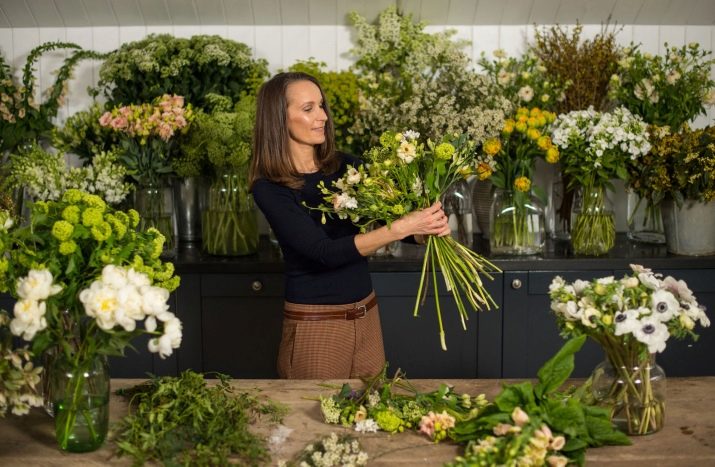
This is a basic list, it can be supplemented, expanded or, conversely, cut back. For example, in a large organization there is a senior florist, whose main functionality is to control the work of other employees, provide methodological assistance, maintain documentation, etc. storage, creation of compositions, and the third accepts orders, conducts cash work, etc.
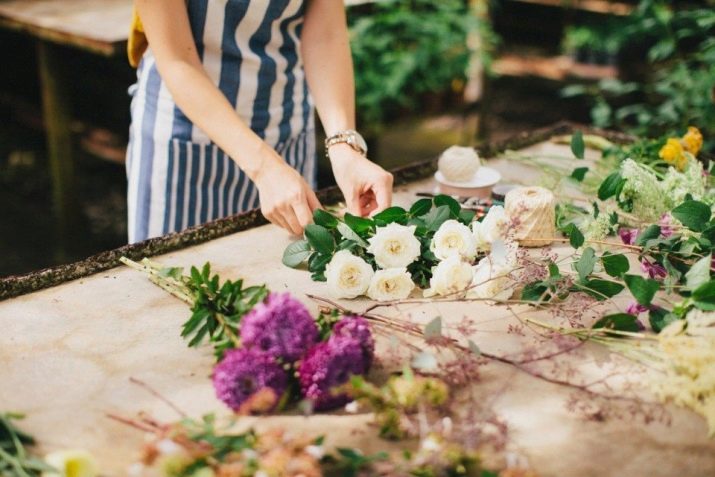
If this is a self-employed florist, he may have an account on a popular social network. Most often, he runs it himself, but if the business expands, his assistants do it. And yet, in most cases, a person must additionally be able to visually present products and write selling posts. This requires an even larger list of knowledge and competencies.
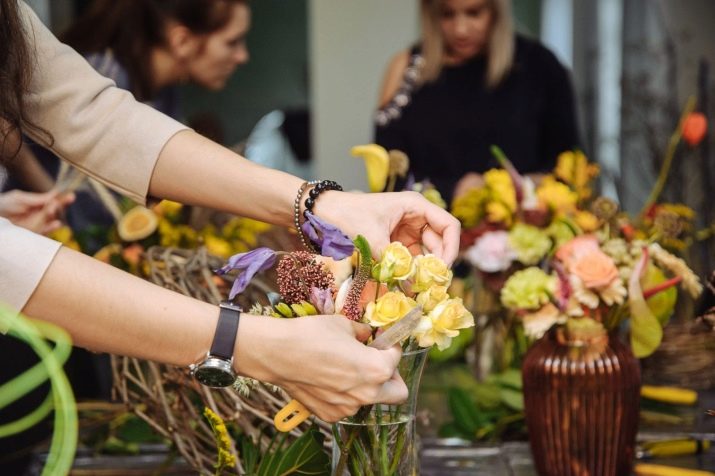
Knowledge and personal qualities
Every florist is an artist. If, of course, this is a competent specialist who strives for excellence in his work. He not only has to know a lot about colors, he has to have a good understanding of color, the basics of composition. He should be guided in styles: from interior to painting, all this is important. This is a person with a good visual sense, with a developed artistic taste.
Of course, no one canceled professional flair, intuition. They say about such people "by nature good taste", but it is wrong to rely only on this. The characteristic of a competent florist will be to define him as a person of constant education, interested in floristry and related fields.
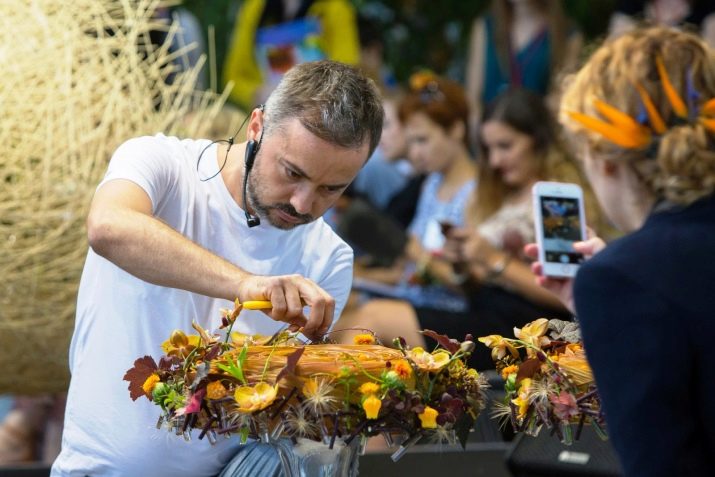
Now let's look at the personal qualities that will help you succeed in this profession.
- Craving for aestheticism, beauty, visual expression of feelings and emotions. These are people who are not indifferent to the beautiful manifestations of life, who understand the importance of good decor and decoration. It should be the need for the artistic orientation of the profession, without which a person does not feel in his place.
- Hard work. The florist cannot wait for inspiration. There will not be much time to dream and try yourself: you need to constantly look after the flowers, monitor their condition, process, etc.
- Professional ambition. Without them, the florist turns into an ordinary flower seller who does everything the old fashioned way, does not follow trends, does not take his work with enthusiasm.
- Benevolence, empathy. If the florist is also a seller, he has to work with people every day. To be interested in their tastes and wishes, guess their mood, help in choosing, etc. To do this, you need to be, if not an open person, then definitely benevolent, delicate, polite, smiling.
- Willingness to learn. It is impossible to graduate from college, get a diploma, and then complete your professional education. Seminars, courses should be regular in the professional life of a florist. Ideally, he should visit art salons, regularly visit the botanical garden, visit museums to develop artistic taste, etc.
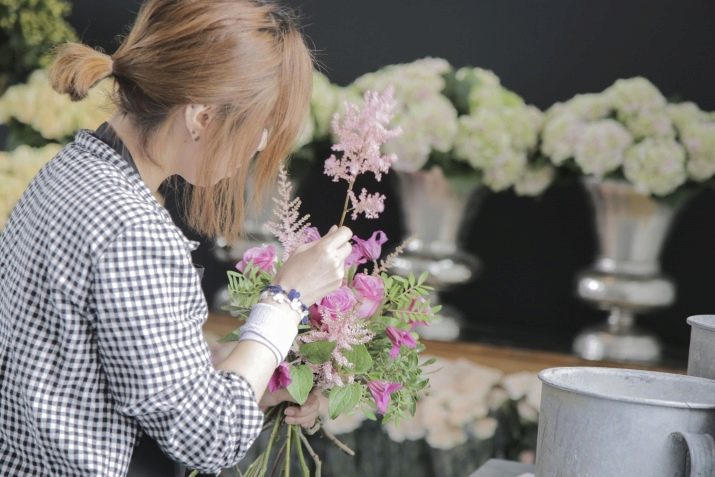
Where to get an education?
Today, a very large part of the educational sector has gone online. And you should not treat this with a certain degree of skepticism: such training is useful, it can compete with many offline courses. Courses "Floristics from scratch", "Modern floristics", "Start to the florist" are offered by many of the largest educational platforms, you just have to score in the search engine search for courses.

Going to college for a diploma is more difficult, there is still no such specialty. It can be an addition to the main one. Very often people retrain: for example, from a certified landscape designer to a florist. And yet the main segment of training is courses. They are basic and complete, the price increases accordingly.
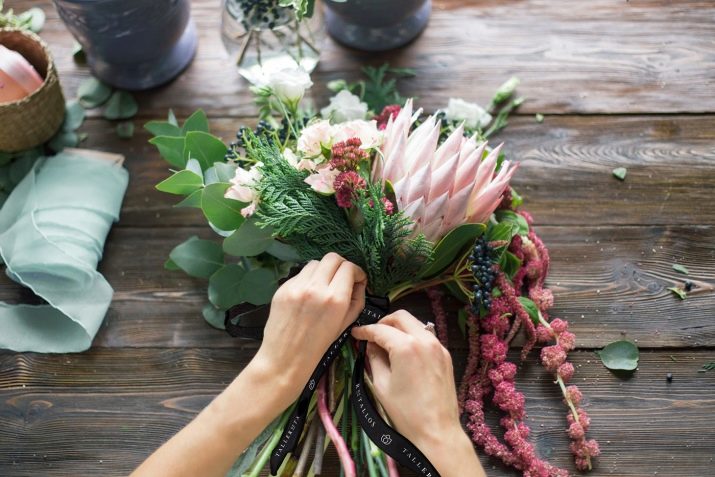
For example, an express course can cost 150 conventional units or more, and includes such training for 24 academic hours. The basic course starts at 300 conventional units and assumes 48 academic hours, but the full one will require 500 conventional units (and this is not the limit), and the duration of the course is 96 hours.
Learning means taking a full course and passing tests or exams, perhaps taking a little practice or internship.
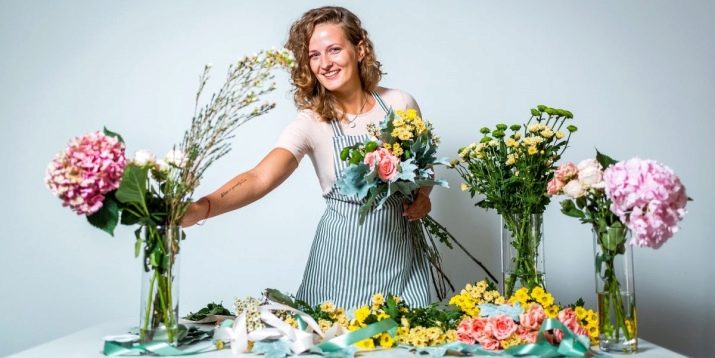
Place of work
Trainees without experience are often hired, who will have to study on the spot. Beginning florists often have to be on the hook, not counting on a high salary. However, this is also useful. Subsequently, you can isolate your narrow specialization: for example, to become a florist decorator of celebrations or to be engaged in strictly landscaping offices. In Russia, these areas are developing, and therefore there is a prospect. You can get experience in different areas of floristry in order to understand in which one to improve.
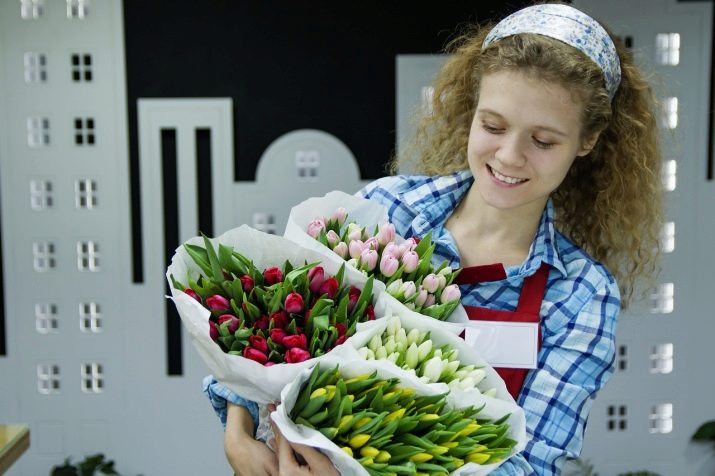
How much does he earn?
A newcomer's salary in a small store is on average 18-25 thousand rubles, of course, it depends on the city. Those who work for themselves and actively maintain social networks can count on 60-100 thousand rubles a month, but, of course, not at the beginning of their careers, but as they progress. But such amounts are really possible, however, sometimes you have to work seven days a week.
The main thing that attracts a person to the profession of a florist – the flowers themselves. The desire to be involved in this living beauty and to make it even more perfect, to decorate the life of other people with it. This desire is the point that becomes the starting point and helps the future specialist to overcome a lot: to find money for training, practice a lot, make mistakes, learn and gradually promote his name.
